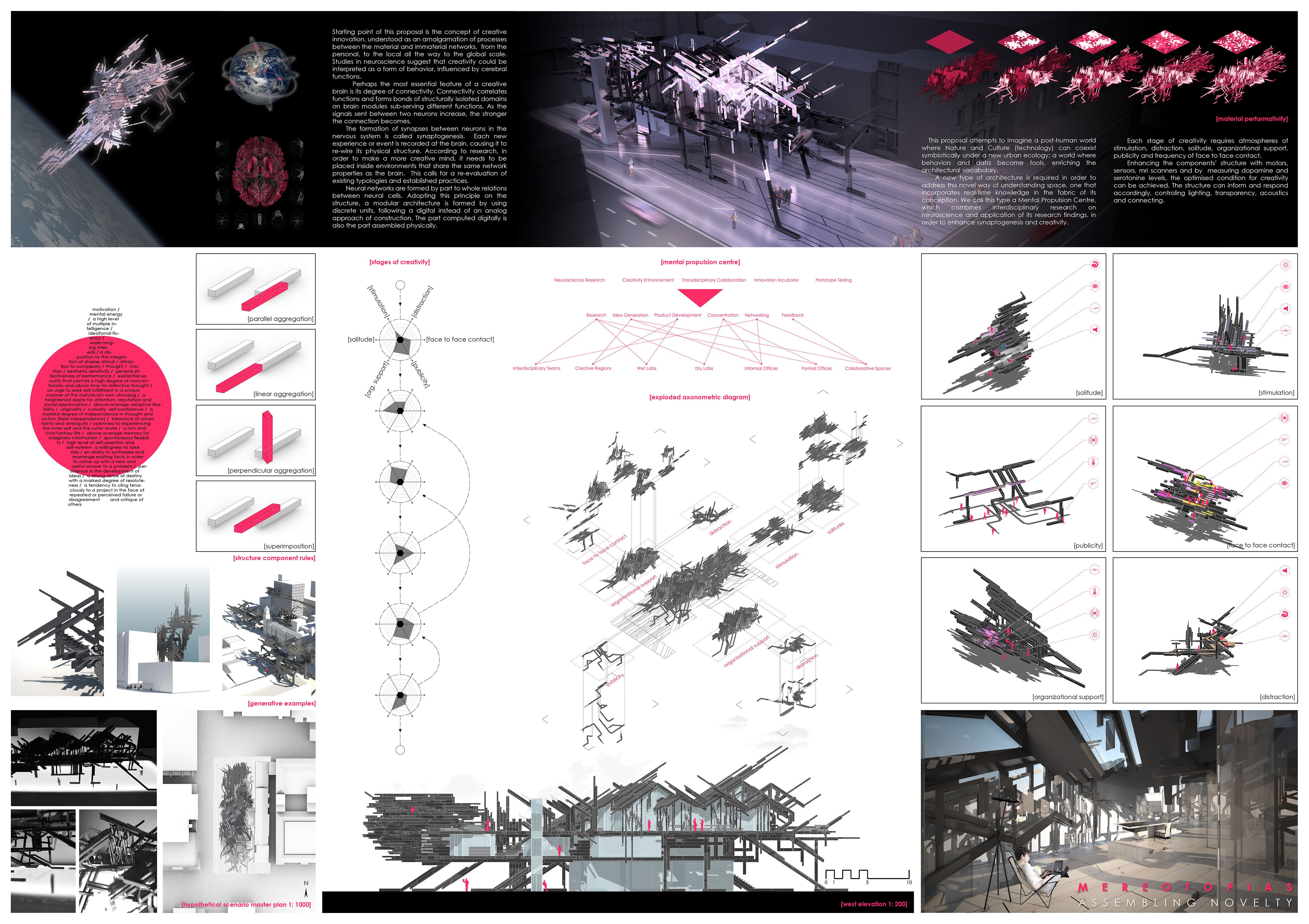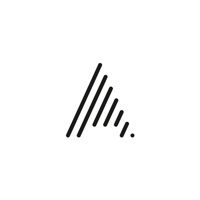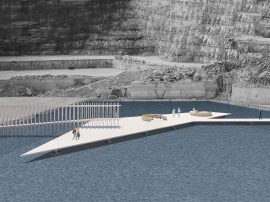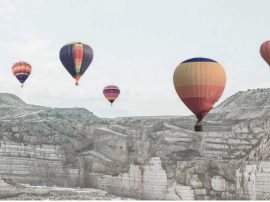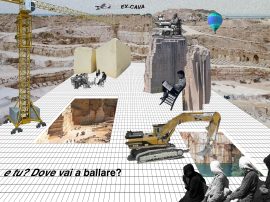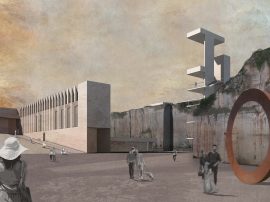This proposal attempts to imagine a post-human world where Nature and Culture (technology) can coexist symbiotically under a new urban ecology; a world where behaviors and data become tools, enriching the architectural vocabulary. A new type of architecture is required in order to address this novel way of understanding space, one that incorporates real-time knowledge in the fabric of its conception. We call this type a Mental Propulsion Center, which combines interdisciplinary research on neuroscience and application of its research findings, in order to enhance synaptogenesis and creativity.

Starting point of this proposal is the concept of creative innovation, understood as an amalgamation of processes between the material and immaterial networks, from the personal, to the local all the way to the global scale. Studies in neurosciences suggest that creativity could be interpreted as a form of behavior, influenced by cerebral functions. Perhaps the most essential feature of a creative brain is its degree of connectivity. Connectivity correlates functions and forms bonds of structurally isolated domains on brain modules sub-serving different functions. As the signals sent between two neurons increase, the stronger the connection becomes.The formation of synapses between neurons in the nervous system is called synaptogenesis. Each new experience or event is recorded at the brain, causing it to re-wire its physical structure. According to research, in order to make a more creative mind, it needs to be placed inside environments that share the same network properties as the brain. This calls for a re-evaluation of existing typologies and established practices.

Neural networks are formed by part to whole relations between neural cells. Adopting this principle on the structure, a modular architecture is formed by using discrete units, following a digital instead of an analog approach of construction. The part computed digitally is also the part assembled physically. Each stage of creativity requires environments of stimulation, distraction, solitude, organizational support, publicity and frequency of face to face contact.Enhancing the components’ structure with motors, sensors, MRI scanners and by measuring dopamine and serotonin levels, the optimized condition for creativity can be achieved. The structure can inform and respond accordingly, controlling lighting, transparency, acoustics and connectivity.

The Board:
